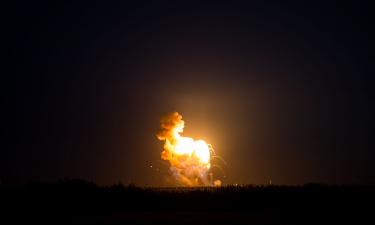Genocide in Sudan's Darfur region
The Bush administration for the first time on Thursday called attacks in Sudan's Darfur region by government-backed Arab militia against black Africans ``genocide.'' The designation by Secretary of State Colin Powell came as a U.S. proposal in the U.N. Security Council to impose sanctions against Sudan encountered opposition. Powell told Congress that Sudan's government is to blame for the killing of tens of thousands and uprooting of 1.2 million people. In recent interviews with 1,136 refugees in neighboring Chad, the State Department found a ``consistent and widespread pattern of atrocities committed against non-Arab villagers,'' according to a department report. It added that about a third of the refugees who were interviewed heard racial epithets while under attack. Powell said that as a member of the 1948 international genocide convention, Sudan is obliged to prevent and punish acts of genocide. ``To us, at this time, it appears that Sudan has failed to do so,'' he said. Powell's announcement came as the United States was pressuring the U.N. Security Council to impose sanctions on Sudan's oil industry, among other measures, if the government does not take steps to improve security in Darfur. Such sanctions are opposed by China and Pakistan, Security Council members that import Sudanese oil, reports Guardian Unlinited. According to the Christian Science Monitor, of the 1.4 million refugees, 1.2 million like Amira are in about 150 camps for internally displaced people in western Sudan. Some are extensions of existing villages; some have popped out of nowhere. Some contain a few hundred people, others have tens of thousands. Some are established, with mud walls surrounding the straw huts and little garden plots with planted vegetables and some are new, with families crowded under white plastic sheeting. In the bigger ones, nongovernmental organizations (NGOs) provide everything from water and food to health services and playgroups for the children. In some of the more remote, inaccessible or small camps, often there is nothing at all: just people crouching on the ground, shooing away the flies. The latest UN humanitarian situation report said food is being provided to 62 percent of the conflict affected population, that 53 percent had received shelter and nonfood items like pots and blankets, 36 percent had access to clean water. The report further noted that there are about 500 international staff and approximately 3,690 national staff currently working in the Darfur operations. After eight months in existence, Amira's camp, called Ardamata, in West Darfur, has an air of permanence. Fences made of thorn-tree branches separate neighbor's compounds, and a small market thrives on its outskirts. There is a school put up by UNICEF, a clinic run by the NGO Medair, and afterschool programs and women's groups led by Save the Children-USA, another NGO. The UN's World Food Program (WFP) was busy last week orchestrating their third food distribution in as many months here: yellow split peas, sorghum, wheat, and vegetable oil - 2,100 calories worth per person per day - all trucked in from a warehouse in nearby Genaina. It's handed out by staff from Save the Children, who check registration cards. Further away, near the Kirinding and el Hujaj camps, where the roads have been washed away by the rains, the WFP drops food from planes to the astonishment of the people below. Secretary of State Colin Powell declared for the first time Thursday that the wave of atrocities in Sudan's Darfur region constitutes genocide, a finding the Bush administration hopes will increase world pressure on Sudan's rulers to end the crisis. Powell, speaking to a Senate panel, said Sudan's government is complicit in the brutal campaign of racial eradication carried out by Arab militias known as the Janjaweed against black non-Arabs in Darfur. After reviewing a report by teams of investigators, "we concluded - I concluded - that genocide has been committed in Darfur, and that the government of Sudan and the Janjaweed bear responsibility, and that genocide may still be occurring," he told the Senate Foreign Relations Committee. Powell's announcement ends a months-long debate within the U.S. government over the issue, a debate heavily colored by the world's failure to deal with the genocide in Rwanda a decade ago. But it's unclear what practical effect it will have. Powell acknowledged, "No new action is dictated by this determination." The Bush administration isn't considering direct military intervention. Instead, it's pushing Sudan to accept the deployment of roughly 4,000 African Union troops and police to protect Darfur's non-Arab population, informs KRT Wire.
Read earlier news stories by PRAVDA.Ru
Subscribe to Pravda.Ru Telegram channel, Facebook, RSS!





